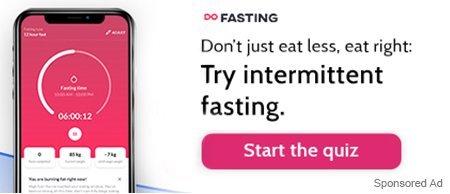Intermittent Fasting and Detox | Detox Types | Detox Benefits | Detox Side effects
What is Detox Fasting, and how do I do it safely? Modern medical science has highlighted the significance of “fasting” and how it can be successfully used to treat and control specific illnesses that have plagued humans throughout the ages. Many doctors and healthcare professionals suggest a calorie-restrictive diet or fasting to prevent ailments like obesity, gastrointestinal problems, rheumatic diseases, chronic pain syndrome, hypertension, and diseases related to abnormal metabolism.
Fasting is also often associated with detoxification, as evidence suggests that following a fasting routine can help the body eliminate toxins accumulated over time. This article will discuss fasting to detox and how it helps cleanse the liver, colon, and body cells. We will also point out the other benefits and risks of fasting so that you know how detox with fasting happens before you try it out.
How Does Intermittent Fasting Work?
Intermittent fasting is a popular form of fasting when you consume food at a predetermined time window and fast for the rest of the time. The fasting hours in an intermittent fasting diet depend on the type of intermittent fasting diet you choose.
One of the most popular intermittent fasting diets is the 16/8 intermittent fasting diet. People who follow this kind of fasting diet are allowed to eat for 8 hours of the day and have to fast for the remaining 16 hours.
This diet is highly effective and easy to follow as it corresponds with our natural circadian rhythm, which states that our body’s metabolism is highly active during the morning and slows down at night. Other benefits related to intermittent fasting are improved cell activity, which promotes cellular repair, better digestive health, and the removal of toxins from the body, leading to complete detoxification.
How does Intermittent Fasting Promotes Detoxification?
Among the many health benefits attributed to intermittent fasting, or fasting in general, is the body’s detoxification. To better understand how do detoxes work, we must understand how our body processes food in the first place and how fasting affects it.
When we consume food, our body actively starts breaking down (digesting) this food so that it can extract the nutrients it contains and the energy it provides, which is necessary for the proper functioning of the body. The body discards the remaining undigested food through the process of egestion. The combined act of digestion, absorption and egestion is a long and arduous process that sometimes takes more than a few hours for the body to complete.
While fasting, such as in a 3 day fasting detox, very little food is present in our bodies, and the body is essentially burning stored fat to provide the required energy. On a cellular level, fasting promotes autophagy, which means that the body starts removing and repairing the cells of our body, getting rid of all the weak cells.
Similarly, the stomach, colon, and liver begin eliminating their stored toxins. Scientists have often referred to this process as a type of housekeeping done by the body that makes the cells function correctly. This entire process is known as detoxification or fasting for detox.

Detox Types
The types of Detox are categorized based on the body parts they benefit. Let us review the different types of detox and how they help.
Liver Detox From Fasting
The liver is one of the essential organs in our body. The liver’s primary function is to convert toxins into waste material that the body can eliminate. In addition, it metabolizes vital nutrients and medicines and even helps break down alcohol.
Scientifically speaking, the liver does not require any detox to function appropriately, but you should lighten the liver’s workload. That is where fasting comes in handy. While fasting, if we can cut down on processed food and alcohol intake, the liver will be much less overburdened, which means it can function more efficiently. Hence, a liver detox by fasting can be beneficial, as per studies.
Colon Detox From Fasting
The colon is an integral part of our digestive system, and its proper functioning directly translates to our digestive system working healthily. Our colon houses millions of gut bacteria, essential for the breakdown of our food. Improper diet habits can severely affect these bacteria, resulting in serious digestive issues and unhealthy bowel movements.
A 3 day detox fast can help repopulate this gut bacteria and help detoxify the colon from within. Although it must be pointed out that not a lot of research is present to absolutely support this claim, it is generally considered to give your digestive system and colon a break sometimes for their proper functioning.
Metal Detox From Fasting
Some heavy metals like zinc, copper, and iron are essential for the proper functioning of the body. Still, an excess accumulation of these metals can severely affect our bodies and overall health. The air we breathe and the food we eat are directly responsible for accumulating these heavy metals in our system.
Although medical treatments can balance the metal levels in our bodies, many doctors suggest that we can aid the body by detoxifying through specific fasting diets. Studies have proven that when the body does not have food, it has a higher chance of metal detoxification.
Cellular Detox From Fasting
A cellular detox differs from the other regular detoxes we see while fasting. Essentially, when we are fasting for an extended period, our cells start experiencing autophagy, which means that our cells start to consume the dead and weak cells of our body, which will be replaced by new cells in the long run.
Studies have shown cellular autophagy, triggered by extensive fasting, can have various neuronal benefits. In simple terms, it can be seen as a cellular quality control measure where the defective cells and cell organelles are removed and replaced with new ones. Autophagy can prevent various diseases, like diabetes, inflammation, heart disease, and even some forms of cancer.
Benefits Of Detoxification
Some of the benefits related to fasting and detoxification are as follows:
1. Weight Loss
Diet and exercise are important factors contributing to weight loss in the long run. A body burdened by toxic elements will hinder weight loss as toxins in the blood often lower the body’s metabolism, significantly slowing weight loss. Hence, it is a good idea to practice periodic detox diets, which aid in weight loss.
2. High Energy Levels
People with a higher level of accumulated toxins may feel lethargic and sluggish. A toxin detox will help boost your metabolism and improve your digestive health, making you feel more energized throughout the day.
3. Improved Liver Health
The liver is the primary organ that tirelessly removes the accumulated toxins from our body. A toxin-free body will lessen our liver’s burden, leading to better liver health.
4. Improved Immunity
High toxin present in the body adversely affects almost all aspects of the body, including immunity, since the immune and lymphatic systems are overburdened as they regularly remove the toxins from our body. A detox diet helps reduce the toxicity levels, allowing the white blood cells to better deal with diseases.
5. Better Skin Health:
The skin is the largest organ of our body, and a high level of toxin presence directly manifests itself in our skin health. Fasting for detox will help eliminate the toxins from our body, making our skin look healthy and vibrant.
To know more about how intermittent fasting works and its various benefits, read 8 Benefits Of Intermittent Fasting: A Complete List.

Possible Side Effects Related To Detox Fasting
Along with the many health advantages of detox fasting, there are some adverse effects as well, such as the following:
- Fasting for people trying it out for the first time can be tricky and unpleasant as it can make them feel lethargic and weak. Some people may also experience headaches related to fasting.
- People who are suffering from health issues like diabetes, cardiovascular disease, and blood pressure irregularities must stay away from fasting diets as they can aggravate their conditions.
- People who suffer from eating disorders must not attempt any fasting program. Diets like the “3 day detox lose 10 pounds” diet can be extremely harmful.
- Multiple days detox plans like the detox 3 day, detox 5 day, and detox 7 day plans should only be followed after proper consultation with a medical health professional.
- Pregnant women or women who are breastfeeding require additional energy throughout the day, so it is not advised to fast for an extended period.
- People who suffer from severe indigestion or digestion-related issues must not follow detox fasting as long periods without food can harm their condition.
To Conclude
Most people love to eat but maintaining that right balance of what and when to eat makes a lot of difference to your body. Health experts aggressively stress the importance of physical activity and fasting. It is time you should listen to your health needs if not done already.
Detox fasting is a great way to rid our bodies of the accumulated harmful toxins, which are the root cause of many ailments. However, if you are interested in fasting for detox, you must evaluate all the side effects before attempting any such diet.
Want to improve your relationship with food, lose weight, and detoxify? Join our 21-day intermittent fasting challenge.
I recommend starting here to learn more about these types of fasting which are the MOST popular, starting with 16/8 Fasting, click on these guides below to learn more:
16/8 Fasting Guide, 14/10 Fasting Guide, 18/6 Fasting Guide, One Meal a Day Guide.











